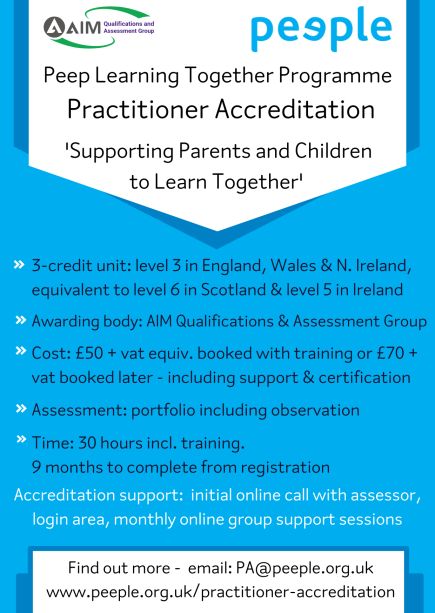'I found completing the accreditation really beneficial. I enjoyed reflecting on my practice since starting Peep delivery, it has highlighted my development and growth as a practitioner and furthered my passion for the Peep Learning Together Programme.' Rachel, Peep Practitioner, Aberdeen City Council
'It was lovely to have a dedicated assessor who encouraged me and celebrated my submissions along with me. It was a boost to my day every time I got some positive feedback from my assessor, and kept me going.' Jennifer, Let’s Grow Together Practitioner, Cork
'I applied for the Practitioner Accreditation to give me a deeper knowledge and understanding of the Learning Together Programme. I have found the learning experience very useful as a tool to help me with this. It’s made me reflect on my delivery of the Programme and how I could make it better. Doing the research and gathering the evidence needed to complete the tasks was also interesting and enjoyable. The support from my assessor was consistent and there when I needed it throughout the process, and there were workshops offering support regularly to help with completing the tasks.
The accreditation process has given me more confidence to plan and deliver the topics. It has also made me more aware of how important home learning is to a child’s development. It has made me think about the dynamics of different groups and the need to adapt and vary my delivery to suit the group. All these things have helped me to build positive relationships with the families in my groups, and given them more confidence to support their children’s learning.' Moira, HomeStart Volunteer, Edinburgh

